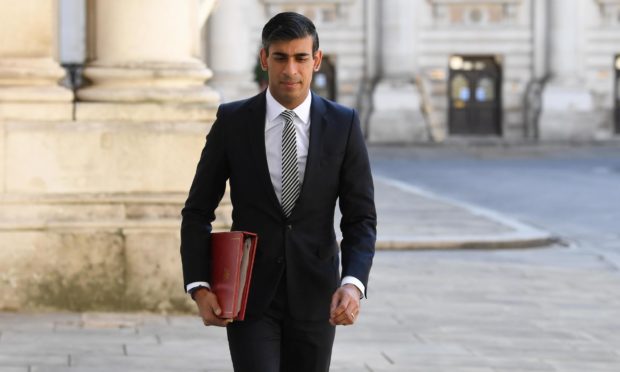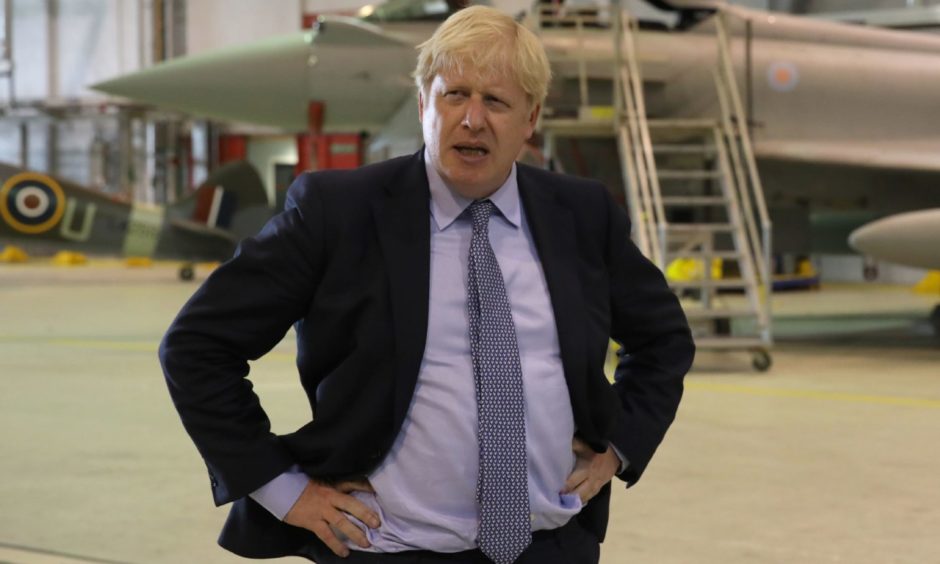Rishi Sunak is a precious commodity for the UK Government when it comes to Scotland.
Compared with his UK Government colleagues, especially Prime Minister Boris Johnson, the Chancellor is relatively highly rated as a politician by voters north of the border.
A YouGov poll, published just before Mr Sunak’s Scottish visit, bore this out. Out of a sample of 1,134 Scots, 41% had a favourable opinion of the Chancellor, compared with 34% who did not (25% didn’t have a view).
Perhaps not the most impressive ratings, but they were stellar when compared with Boris Johnson’s.
The same survey found almost three quarters of Scots (73%) had an unfavourable opinion of the prime minister with 56% describing their view as “very unfavourable”.
Aberdeen’s own Michael Gove also fell far short of the Chancellor when it came to his reception north of the border. According to YouGov, 69% of Scottish voters have an unfavourable opinion of the Cabinet Office Minister, despite his links to the north-east.
It is clear why the Conservatives regard Mr Sunak as something of a trump card. So it was that he came to Scotland for the first time as Chancellor, as a key part of the UK Government’s latest efforts to persuade Scots of the benefits of being in the United Kingdom.
That he should prove more popular than his colleagues can be explained by his assured performances during pandemic media briefings and the plaudits he receive for his multibillion-pound “mini-budget” to combat the devastating economic impact of the virus.
His role as the politician splashing the cash to protect jobs seems to be reflected in his personal ratings.
And no doubt there will also be people and hospitality businesses enjoying his imaginative Eat Out to Help Out scheme.
But the challenge he and Mr Johnson face north of the border is also apparent in the YouGov poll.
Sixty-six per cent of those questioned had a favourable opinion of Nicola Sturgeon. When that sort of figure is combined with the Panelbase poll putting independence backing at 54%, it is clear just what a task the Conservatives face in Scotland.
The Chancellor was following in the footsteps of Mr Johnson, Mr Gove, Chief Secretary to the Treasury Steve Barclay and Business Secretary Alok Sharma as part of a flurry of UK Government ministers to cross the border in recent weeks.
All were on a mission to sell the benefits of the Union and how the “broad shoulders” of the UK were sheltering Scotland from the worst economic repercussions of the pandemic. Like the others, he talked about the £6.5 billion in extra cash for Scotland received from the Treasury and the 900,000 Scottish jobs protected by the furlough and other job retention schemes.
Yet so far these arguments do not appear to have made much impression when it comes to stemming the SNP tide. The Conservatives’ ardent wish is that they should do so. Mr Sunak said he hoped that people in Scotland would “see the benefit of the Union” as time goes on and emphasised the collaboration across the UK on testing, PPE and vaccines.
But there was also a tougher message that the Chancellor was broadcasting. The furlough scheme, he said, cannot go on “indefinitely” and will end in October. Managing the end of furlough to minimise job losses is the next daunting challenge in Mr Sunak’s in-tray. His future popularity in Scotland and elsewhere will depend greatly on how he deals with that.

